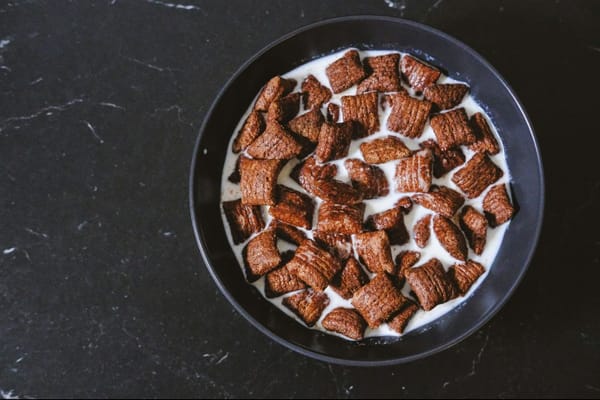The human gut, often referred to as the "second brain," plays a crucial role in our overall health and well-being. This complex ecosystem of microorganisms, collectively known as the gut microbiome, has far-reaching effects on various aspects of our health, from digestion to mental health. In this comprehensive guide, we'll explore the fundamentals of gut health and its impact on overall wellness.
Understanding the Gut Microbiome
The gut microbiome consists of trillions of microorganisms, including bacteria, viruses, fungi, and other microbes, that reside in our digestive tract. This diverse community of microorganisms plays a vital role in:
- Digestion and nutrient absorption
- Immune system function
- Production of certain vitamins and neurotransmitters
- Protection against harmful pathogens
Research has shown that the composition of our gut microbiome can significantly influence our health, with imbalances (dysbiosis) linked to various health issues .
The Gut-Brain Axis
One of the most fascinating aspects of gut health is its connection to brain function, known as the gut-brain axis. This bidirectional communication system between the central nervous system and the enteric nervous system of the gut influences:
- Mood and mental health
- Cognitive function
- Stress response
- Pain perception
Studies have shown that alterations in the gut microbiome can affect brain function and behavior, and vice versa .
Gut Health and Immune Function
Approximately 70-80% of our immune system resides in the gut. The gut microbiome plays a crucial role in:
- Training the immune system to distinguish between harmful and beneficial microbes
- Producing antimicrobial compounds
- Maintaining the integrity of the gut barrier
A healthy gut microbiome is essential for a robust immune system and can help protect against various diseases .
Factors Affecting Gut Health
Several factors can influence the health of our gut microbiome:
- Diet: A diverse, plant-based diet rich in fiber promotes a healthy gut microbiome .
- Stress: Chronic stress can negatively impact gut health .
- Sleep: Poor sleep quality can disrupt the gut microbiome .
- Exercise: Regular physical activity promotes a healthy gut microbiome .
- Medications: Antibiotics and other medications can disrupt the gut microbiome .
- Environmental factors: Exposure to toxins and pollutants can affect gut health .
Improving Gut Health
To promote a healthy gut microbiome and overall wellness, consider the following strategies:
- Eat a diverse, plant-based diet rich in fiber
- Include fermented foods in your diet (e.g., yogurt, kefir, sauerkraut)
- Limit processed foods, sugar, and artificial sweeteners
- Stay hydrated
- Manage stress through techniques like meditation or yoga
- Get regular exercise
- Prioritize quality sleep
- Consider probiotic and prebiotic supplements (consult with a healthcare professional)
The Future of Gut Health Research
As our understanding of the gut microbiome grows, researchers are exploring new frontiers in gut health, including:
- Personalized nutrition based on individual microbiome profiles
- Microbiome-based therapies for various diseases
- The role of the gut microbiome in aging and longevity
- The impact of the gut microbiome on mental health disorders
Conclusion
The health of our gut microbiome plays a crucial role in our overall wellness, influencing everything from our immune function to our mental health. By understanding the importance of gut health and taking steps to nurture our gut microbiome, we can significantly improve our overall health and well-being. As research in this field continues to evolve, we can expect to see even more innovative approaches to promoting gut health and treating gut-related disorders.
Sources:
Lynch, S. V., & Pedersen, O. (2016). The Human Intestinal Microbiome in Health and Disease. New England Journal of Medicine, 375(24), 2369-2379.
Cryan, J. F., O'Riordan, K. J., Cowan, C. S. M., Sandhu, K. V., Bastiaanssen, T. F. S., Boehme, M., ... & Dinan, T. G. (2019). The Microbiota-Gut-Brain Axis. Physiological Reviews, 99(4), 1877-2013.
Belkaid, Y., & Hand, T. W. (2014). Role of the microbiota in immunity and inflammation. Cell, 157(1), 121-141.
Valdes, A. M., Walter, J., Segal, E., & Spector, T. D. (2018). Role of the gut microbiota in nutrition and health. BMJ, 361, k2179.
Karl, J. P., Hatch, A. M., Arcidiacono, S. M., Pearce, S. C., Pantoja-Feliciano, I. G., Doherty, L. A., & Soares, J. W. (2018). Effects of Psychological, Environmental and Physical Stressors on the Gut Microbiota. Frontiers in Microbiology, 9, 2013.
Smith, R. P., Easson, C., Lyle, S. M., Kapoor, R., Donnelly, C. P., Davidson, E. J., ... & Tartar, J. L. (2019). Gut microbiome diversity is associated with sleep physiology in humans. PLoS ONE, 14(10), e0222394.














Member discussion